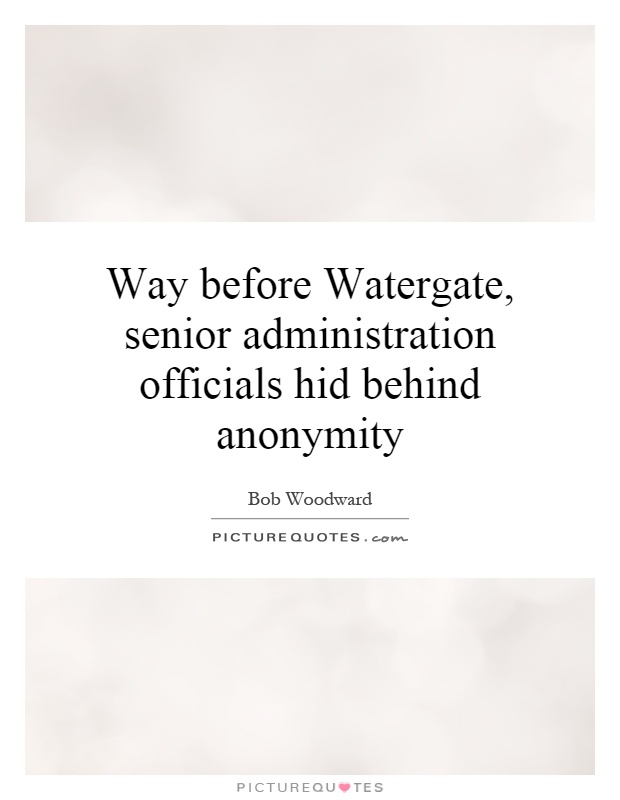Way before Watergate, senior administration officials hid behind anonymity

Way before Watergate, senior administration officials hid behind anonymity
Bob Woodward, a renowned investigative journalist, is best known for his role in uncovering the Watergate scandal that ultimately led to the resignation of President Richard Nixon. However, long before Watergate, senior administration officials were already hiding behind anonymity to leak information to journalists like Woodward.Woodward's career as a journalist began in the early 1970s when he was working for The Washington Post. During this time, he developed a reputation for his ability to cultivate sources within the government who were willing to provide him with sensitive information on the condition of anonymity. This practice of using anonymous sources became a hallmark of Woodward's reporting style and was instrumental in his coverage of the Watergate scandal.
In the case of Watergate, Woodward and his reporting partner, Carl Bernstein, relied heavily on information provided by a high-level government official known only as "Deep Throat." Deep Throat, later revealed to be FBI Associate Director Mark Felt, provided Woodward and Bernstein with crucial information that helped unravel the web of corruption and cover-up surrounding the break-in at the Democratic National Committee headquarters in the Watergate complex.
The use of anonymous sources in journalism is a controversial practice, as it raises questions about the credibility and transparency of the information being reported. Critics argue that anonymous sources can be unreliable and may have ulterior motives for leaking information. However, Woodward has defended the use of anonymous sources as necessary for holding those in power accountable and uncovering the truth behind complex and secretive government operations.












 Friendship Quotes
Friendship Quotes Love Quotes
Love Quotes Life Quotes
Life Quotes Funny Quotes
Funny Quotes Motivational Quotes
Motivational Quotes Inspirational Quotes
Inspirational Quotes